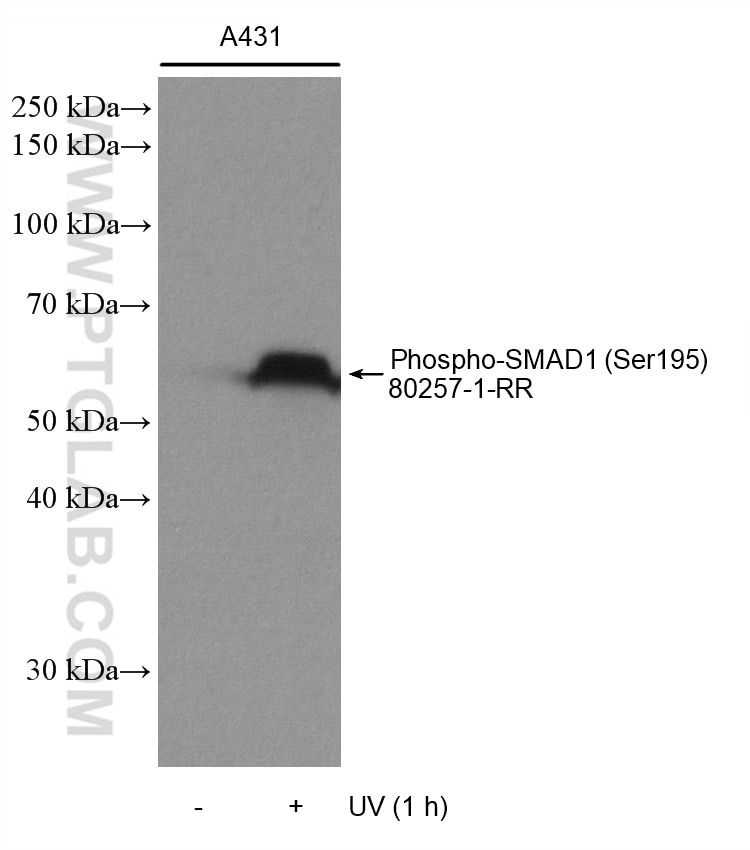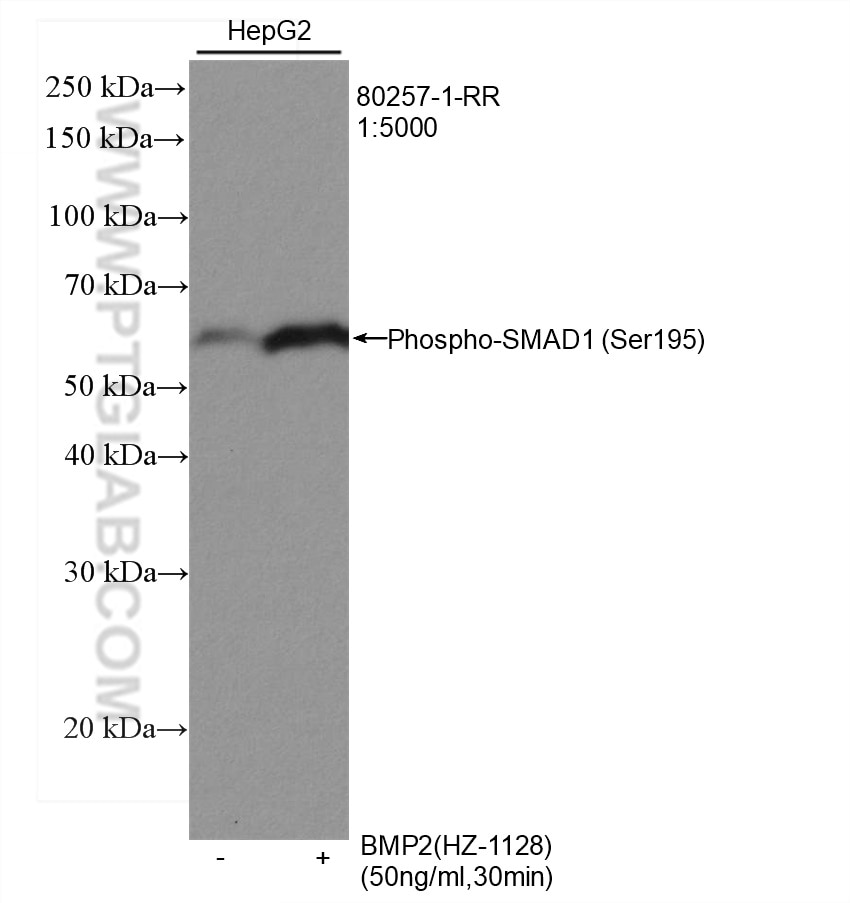Validation Data Gallery
Tested Applications
| Positive WB detected in | A431 cells, BMP2 treated HepG2 cells, UV treated A431 cells |
Recommended dilution
| Application | Dilution |
|---|---|
| Western Blot (WB) | WB : 1:2000-1:10000 |
| It is recommended that this reagent should be titrated in each testing system to obtain optimal results. | |
| Sample-dependent, Check data in validation data gallery. | |
Product Information
80257-1-RR targets Phospho-SMAD1 (Ser195) in WB, ELISA applications and shows reactivity with human samples.
| Tested Reactivity | human |
| Host / Isotype | Rabbit / IgG |
| Class | Recombinant |
| Type | Antibody |
| Immunogen | Peptide 相同性解析による交差性が予測される生物種 |
| Full Name | SMAD family member 1 |
| Calculated molecular weight | 52 kDa |
| Observed molecular weight | 60 kDa |
| GenBank accession number | BC001878 |
| Gene Symbol | SMAD1 |
| Gene ID (NCBI) | 4086 |
| RRID | AB_2918881 |
| Conjugate | Unconjugated |
| Form | Liquid |
| Purification Method | Protein A purification |
| UNIPROT ID | Q15797 |
| Storage Buffer | PBS with 0.02% sodium azide and 50% glycerol , pH 7.3 |
| Storage Conditions | Store at -20°C. Stable for one year after shipment. Aliquoting is unnecessary for -20oC storage. |
Background Information
SMAD family member 1 (Smad1) have been involved in metastatic progression of many cancer types. Smad1 can be induced by many tumor-stimulating cytokines such as the bone morphogenetic protein 2 (BMP2) and TNFα and plays important roles in cell invasion and metastasis. BMP2 signalling is initiated by binding to its specific receptors, which leads to in the phosphorylation and nuclear translocation of Smad1. Translocated Smad1 then modulates the expression of downstream osteogenic genes. (PMID: 32954678, PMID: 30008908)
Protocols
| Product Specific Protocols | |
|---|---|
| WB protocol for Phospho-SMAD1 (Ser195) antibody 80257-1-RR | Download protocol |
| Standard Protocols | |
|---|---|
| Click here to view our Standard Protocols |

